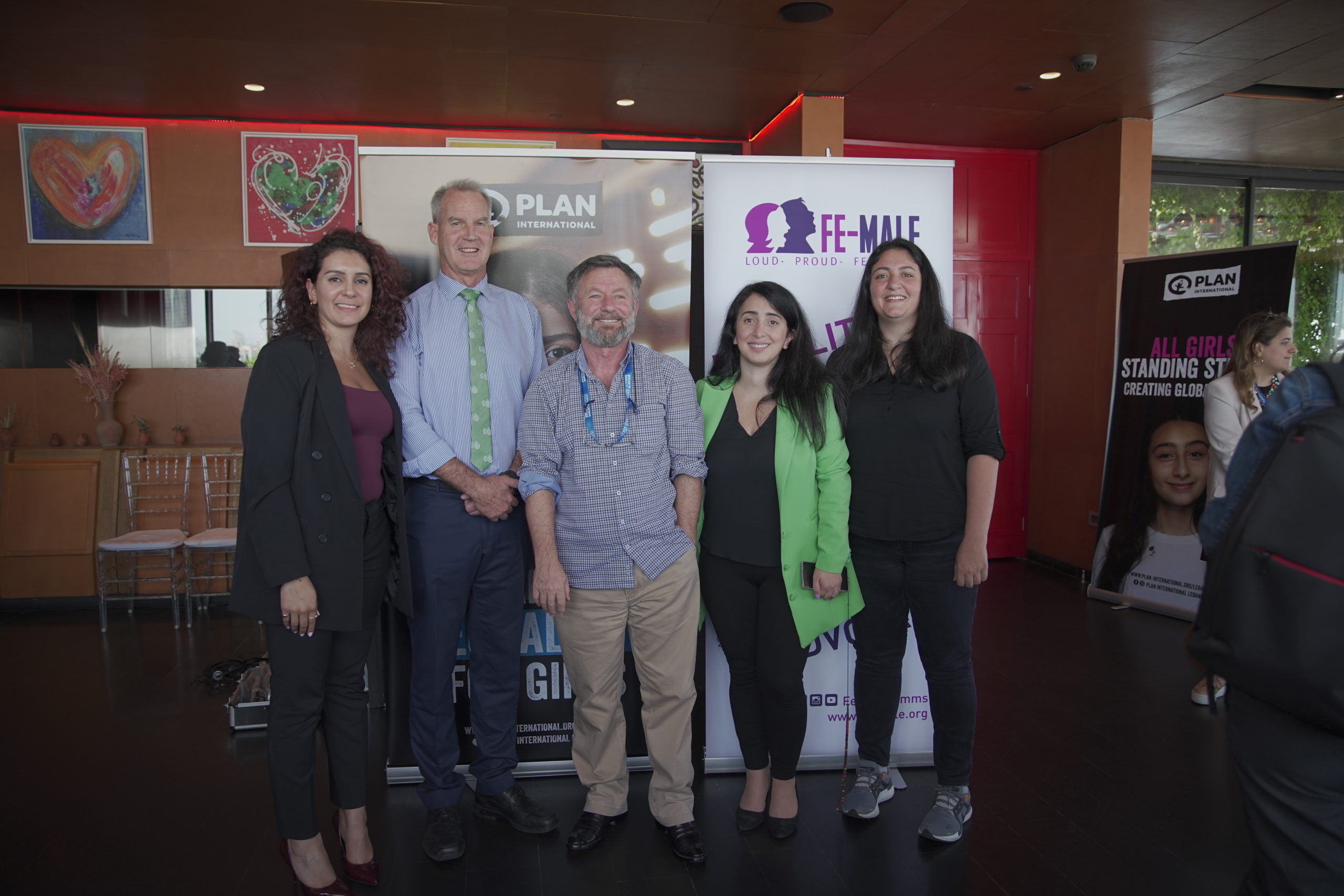BEIRUT: A round table discussion was held on Thursday, May 26, facilitated by the Fe-Male organization and Plan International in Lebanon, to devise a plan for ending period poverty in Lebanon, as a study carried out in 2021 by the two organizations shows that 76% of the girls living in Lebanon cannot afford to buy sanitary pads and other related products.
After providing more than 1600 kits for the benefit of around 3200 women and girls, including migrant domestic workers, Syrian and Palestinian refugees, women living with HIV, the LGBTQI+ community, Lebanese women and girls, and women and girls with disabilities, Plan International and Fe-Male decided to look for new, sustainable and innovative solutions to address these cultural and societal barriers.
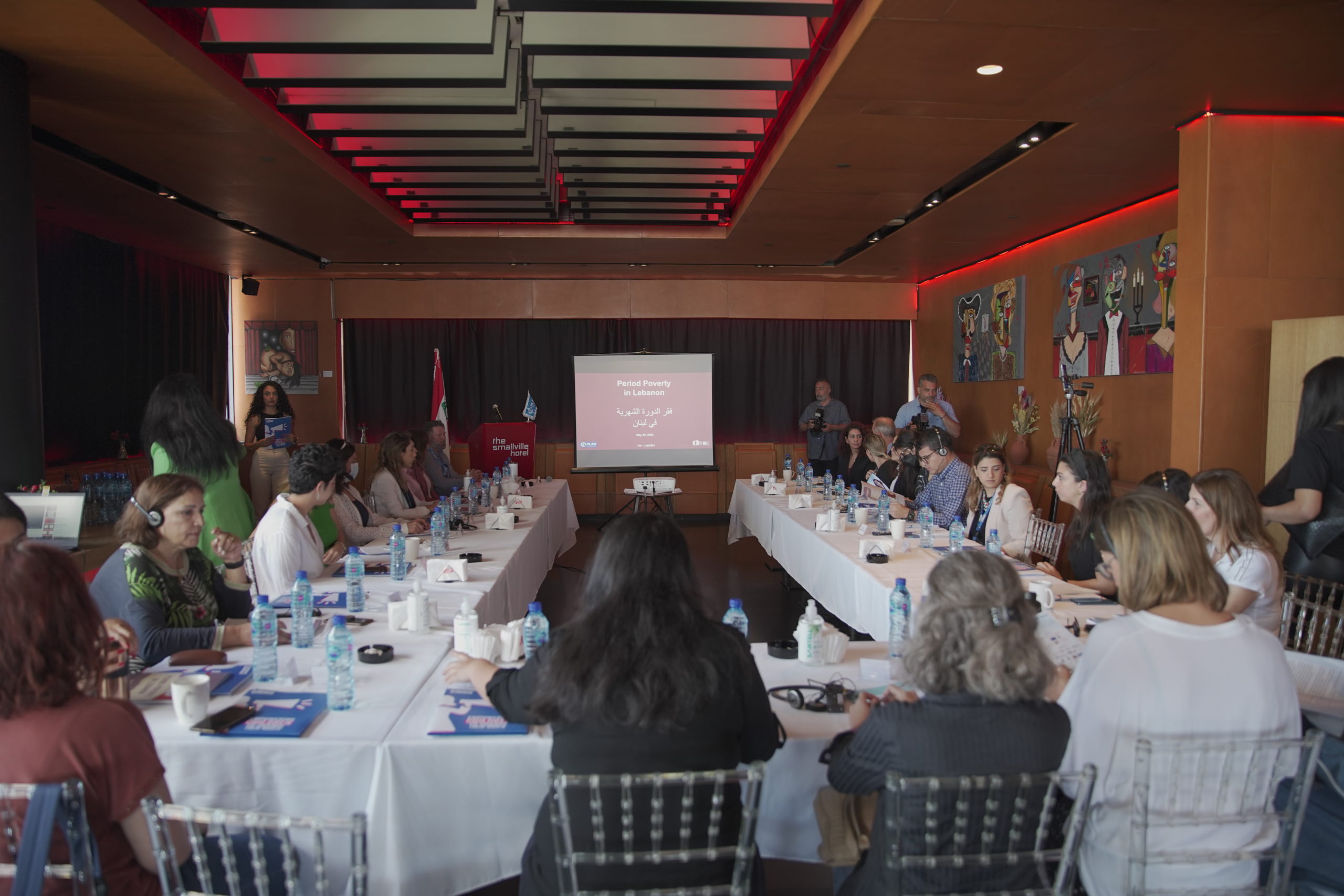
During the discussion, recommendations, work, and future action points were shared by stakeholders from different sectors, including the Australian ambassador to Lebanon, Mr. Andrew Barnes; Ms. Claudine Aoun, President of the National Commission for Lebanese Women; Rola Nasrallah, head of the quality unit at the Lebanese Ministry of Economy and Trade; Pamela Zgheib, Head of the Mother and Child Health Unit at the Ministry of Public Health; Bahia Sleiman, Director of Sexual and Reproductive health program at the ministy of social affairs; Joumana El Hachem, Head of Cabinet at the ministry of Industry; as well as representatives from the World Bank, UNICEF, UN Women, UNFPA and international and local organizations.
The conversational panel used Fe-Male and Plan International’s research study on period poverty in Lebanon as a lens to look at how common period poverty is locally and how girls and women are responding to the economic crisis on a national level.
According to the joint study presented by Rachel Chalita, Advocacy, Influencing and Communications manager at Plan International Lebanon, 76.5% of women and girls have had trouble getting sanitary products because prices have gone up so much, and more than 36% have had physical symptoms because they couldn’t get the sanitary or hygiene products they needed.
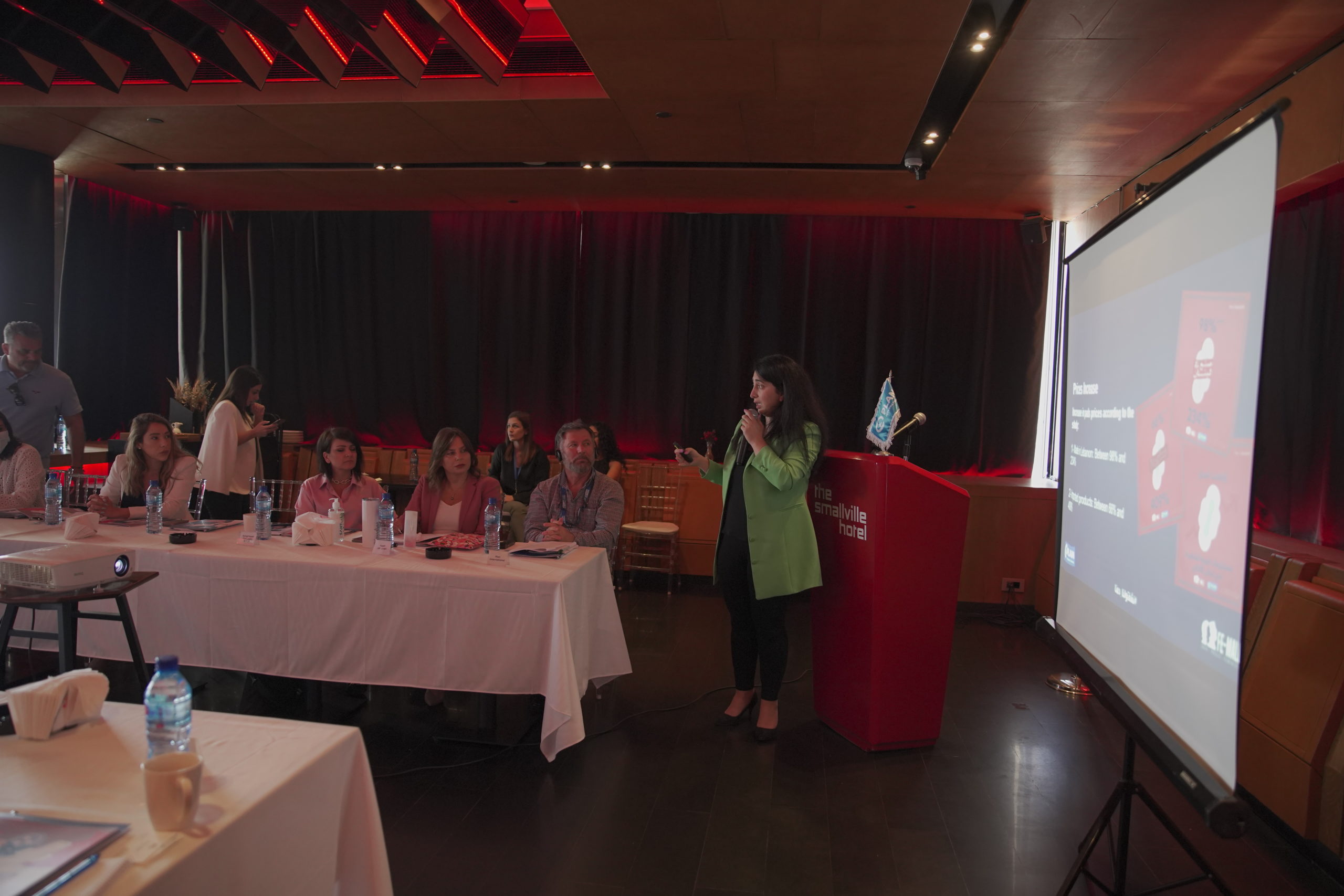
Another alarming finding shared by Chatila showed that 41.78% of 1800 women and girls stated that they had to reduce their consumption of MHPs or use them for periods longer than they were intended for, and 17.11% resorted to using less sanitary means like tissues and clothes during their periods.
“Menstruation is not an option but a biological reality, and access to the products of the menstrual cycle is a human right, and all necessary actions should be taken to ensure girls and women have access to this right!” Safo Visha, Plan International Lebanon, Country director
The round table had kicked off with this mission as stated in Visha’s speech.
As the President of the National Commission for Lebanese Women, Claudine Aoun, said, according to the statistical data, 50% of the Lebanese are now suffering from poverty, which directly affects about 700,000 girls and women who have become economically unable to obtain the necessities.
Aoun said, “This roundtable discussion is to do everything we can to find solutions and meet the needs of girls and women in Lebanon so they can stay in school, work, and take part in social life.” She added that these solutions could come from financial and economic reform, such as lowering the prices of menstrual products. Encouraging investment in local production and these requirements may not apply to social assistance, but they may be a part of future policies for social support.”
According to Hayat Mirshad, Director of Fe-Male, by addressing period poverty head on, “one day, when a woman asks for help, we may be able to offer a concrete solution,” and “perhaps, one day, women in Lebanon may not even need to ask at all.”
Mirshad launched the round table with an emphasis on starting coordination and networking between different actors and finding mechanisms for working together towards finding a sustainable solution.
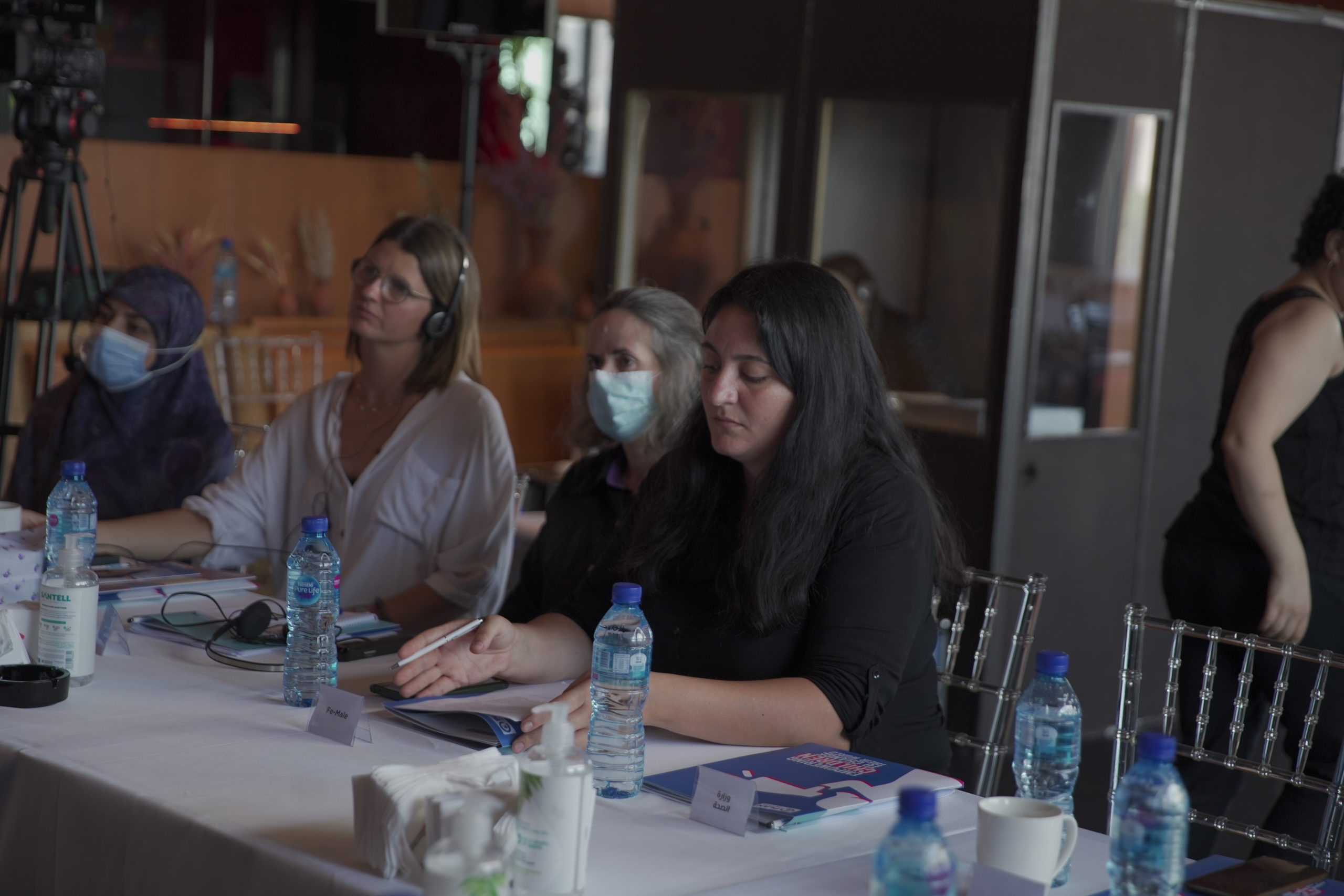
Here are some of the recommendations that have been concluded, as well as the action points that were provided to systematically start the mission.
Directed at ministries:
-Encouraging the Ministry of Education and Higher Education to add information sessions on how to take care of menstrual hygiene to the current curriculum.
-Encouraging the Ministry of Social Affairs to add menstrual hygiene products to the national program that helps the poorest families with direct help from the World Bank.
-Working with the Ministry of Social Affairs and the Ministry of Public Health to make sure that public health centers and social development centers offer sanitary products for free.
– Conducting scientific and economic feasibility studies and assessments of local production needs, market demand, and business modules.
-Supporting local production of menstrual products; investigating product taxes.
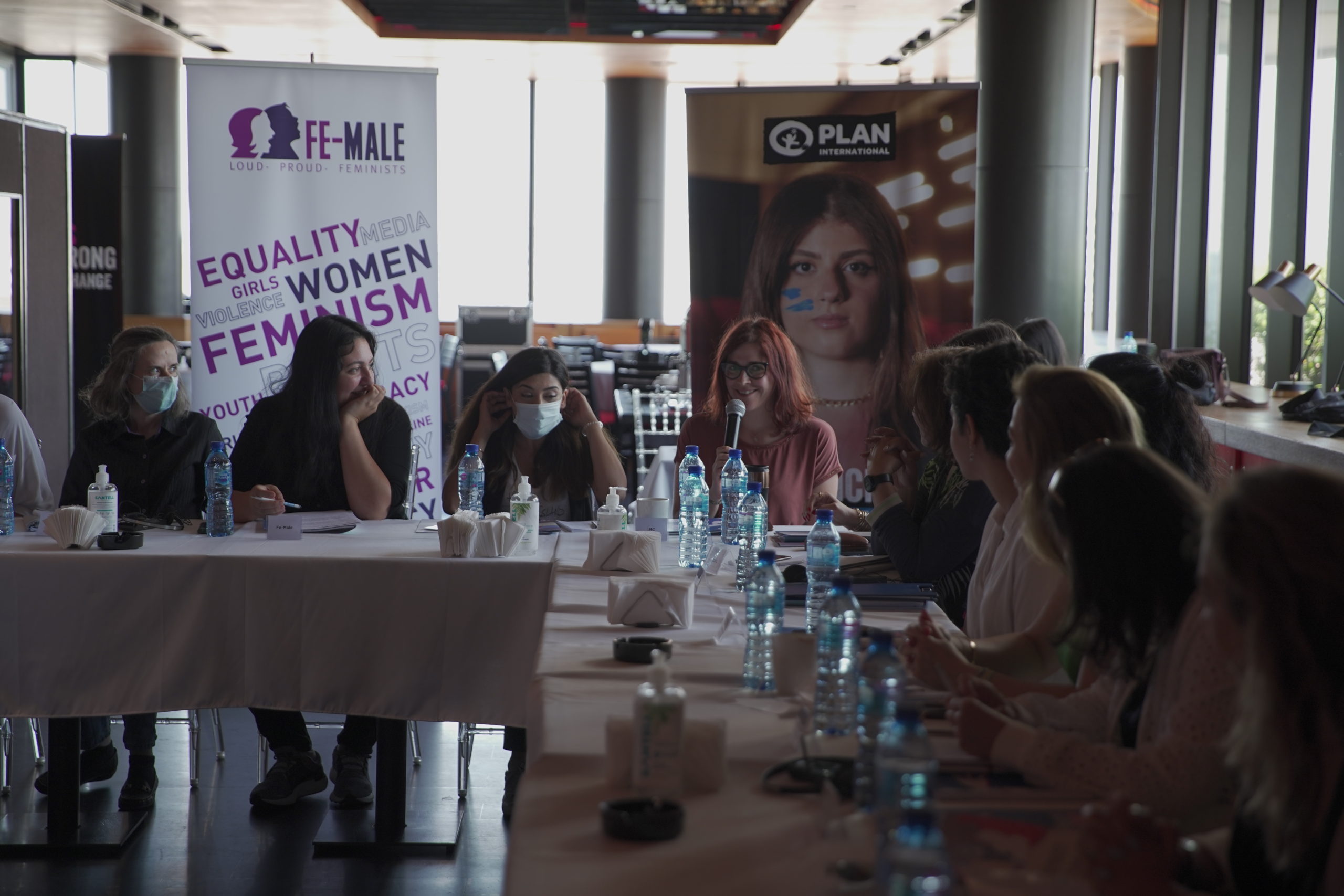
Towards organizations and donors:
– Looking into other best practices from different countries and developing communications and advocacy plans.
– Conducting a study on the health impact and cost of the unsanitary coping mechanisms followed by women and girls and launching a national study in partnership with the ministry of health on the findings.
– Strengthening coordination between actors working on period poverty and facilitating sharing of information and resources.
– Unifying awareness packages.
– Advocating for more support and funding for SRHR and period poverty work and ministries involved, especially during the current economic crisis and the lack of financial resources and budgets in the ministries.
– Conducting scientific and economic feasibility studies and assessments of local production needs, market demand, and business modules.
– Expanding awareness through intensive campaigning, mainly to break period taboo and stigma and including teenage girls, young women, their parents or other caregivers, and the rest of the community in information sessions on menstrual hygiene management (there is a training curriculum developed by UNFPA and AUB targeting service providers and other resources that we can make use of).
-In the case of suggesting sustainable options like reusable sanitary pads and menstrual cups as a solution or distributing them, this needs to be accompanied by awareness sessions on their use and importance while respecting women and girls’ choice or preference to use sanitary pads.
Finally, attendees agreed that by keeping menstruation an “on the table” subject, it helps other women feel more comfortable asking for help, accessing information, and exploring their options.
It also means that conversations around period poverty come out of the shadows and into the mainstream, which will encourage even more support.
